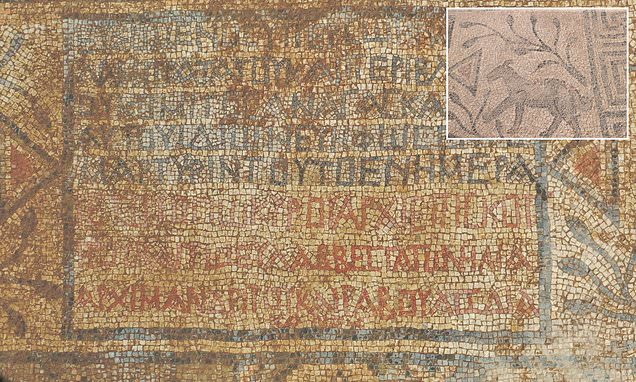Home / Arts and Entertainment / Rare 1,500-Year-Old Christian Mosaic Uncovered in Turkey, Offering Glimpse into Early Biblical Traditions
Rare 1,500-Year-Old Christian Mosaic Uncovered in Turkey, Offering Glimpse into Early Biblical Traditions
18 Nov
Summary
- 1,500-year-old Christian mosaic discovered in Urfa, Turkey
- Mosaic depicts scenes of creation and divine order
- Inscriptions mention church leaders, suggesting religious significance

In a remarkable archaeological discovery, a 1,500-year-old Christian floor mosaic has been unearthed in Urfa, Turkey, shedding light on early biblical traditions. The mosaic, dated between 460 and 495 AD, is decorated with intricate designs depicting animals, plants, and the four classical elements of air, water, earth, and fire.
The natural imagery appears to mirror themes from the Book of Genesis, with the animals and plants representing God's creation, and the four elements symbolizing the harmony and order of the world described in Scripture. Inscriptions on the mosaic also mention the names of church leaders, including Bishop Kyros, Elyas, and Rabulus, suggesting the site's ongoing religious significance for early Christians in the region.
Excavation director Professor Gulriz Kozbe believes the mosaic likely served as the floor of a church, chapel, or martyrium, a shrine dedicated to a Christian martyr. The discovery of three burials of religious officials further reinforces the site's role as a spiritual hub shaped by biblical teachings.
The mosaic's discovery in Urfa, traditionally believed to be the birthplace of Abraham, a central figure in the Old Testament, underscores the city's long-standing religious importance. This remarkable find provides a unique window into the early Christian community's efforts to preserve and honor their sacred traditions and connections to biblical history.



